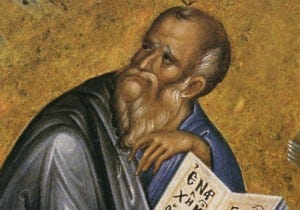How Did We Get the New Testament Canon?

The origins of the New Testament canon have become a point of contention in our day. What hangs in the balance is the validity of the Bible as Christians’ authoritative guide in faith and life. Some have claimed that in the fourth century, the group with the largest army and political power chose what books to include in the New Testament. Charles Hill argues that it’s not so simple.
Professor of New Testament at Reformed Theological Seminary in Orlando, Florida, Hill recently wrote an essay for Christ on Campus Initiative (a nonprofit with which I serve) that addresses this question in detail. His essay, “Who Chose the New Testament Books? Politics, Praxis, and Proof in the Early Church,” explores the historical evidence for the origins of the New Testament and presents a fuller picture than we hear in popular media.
In his essay, Hill exposes the idea that Constantine chose the twenty-seven books of the New Testament as a myth. And he argues against the notion that the church used specific criteria in a long drawn-out process to select the best books for use in worship and teaching.
Instead, he offers evidence that those in the early church saw themselves as “the favored recipients, preservers, and proclaimers of the life-giving message God had given to the world in Jesus Christ” (34). Rather than creating a canon themselves, they believed that they were recognizing the self-authenticating nature of these writings as coming from God.
Charles Hill’s essay is recommended as an intellectually rigorous exploration of canon formation for courses in the history of Christianity, early church history, or New Testament introduction—or for anyone interested in the question of canon. He offers a timely essay on an important historical topic.

